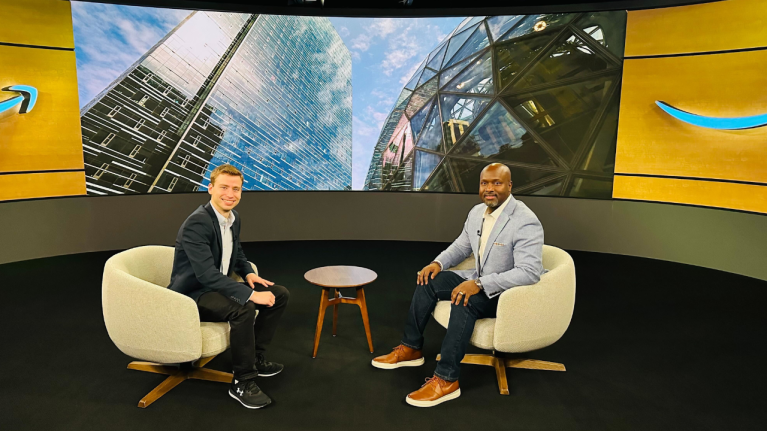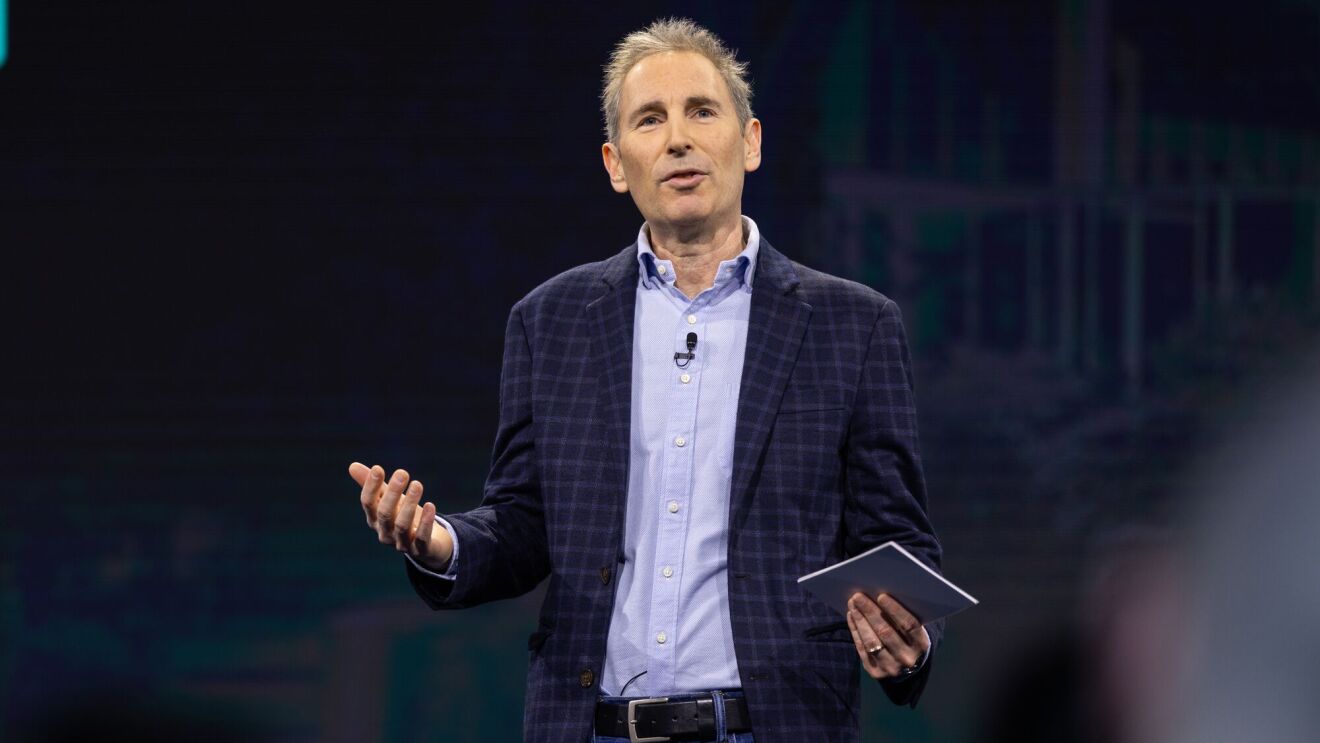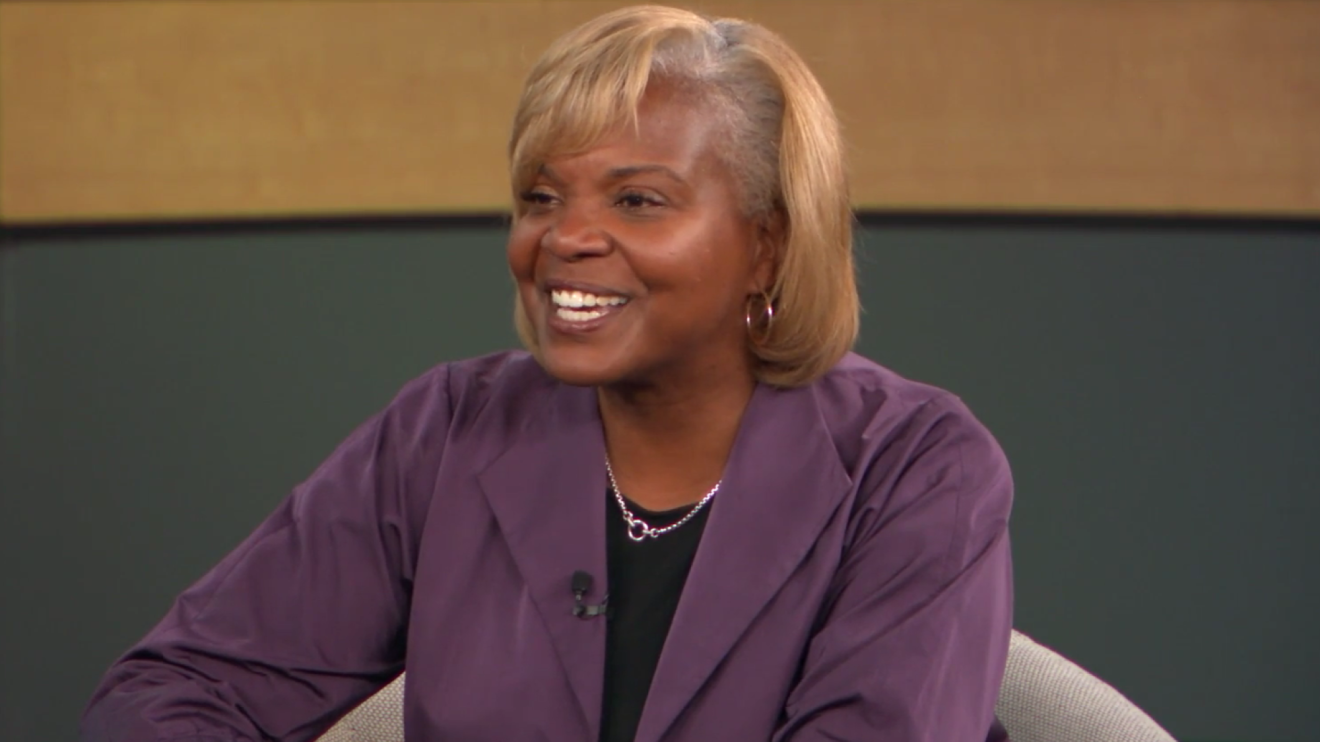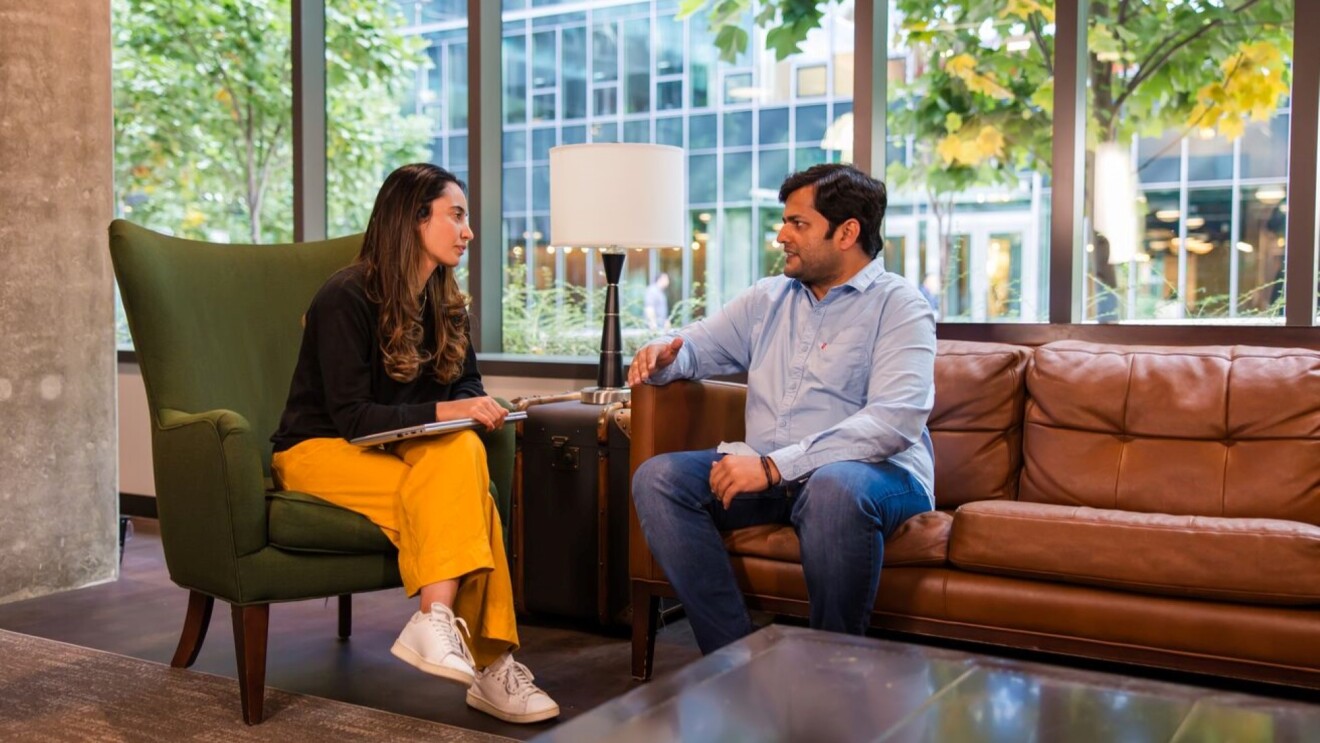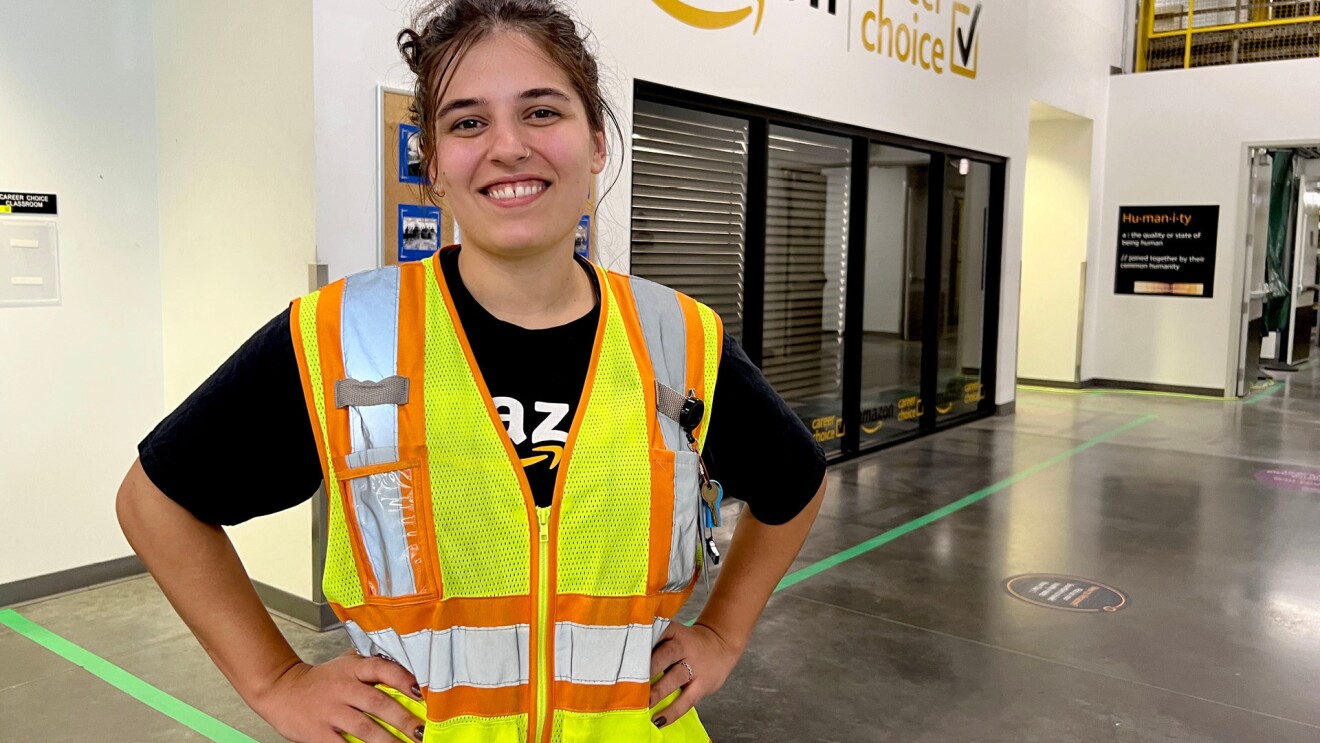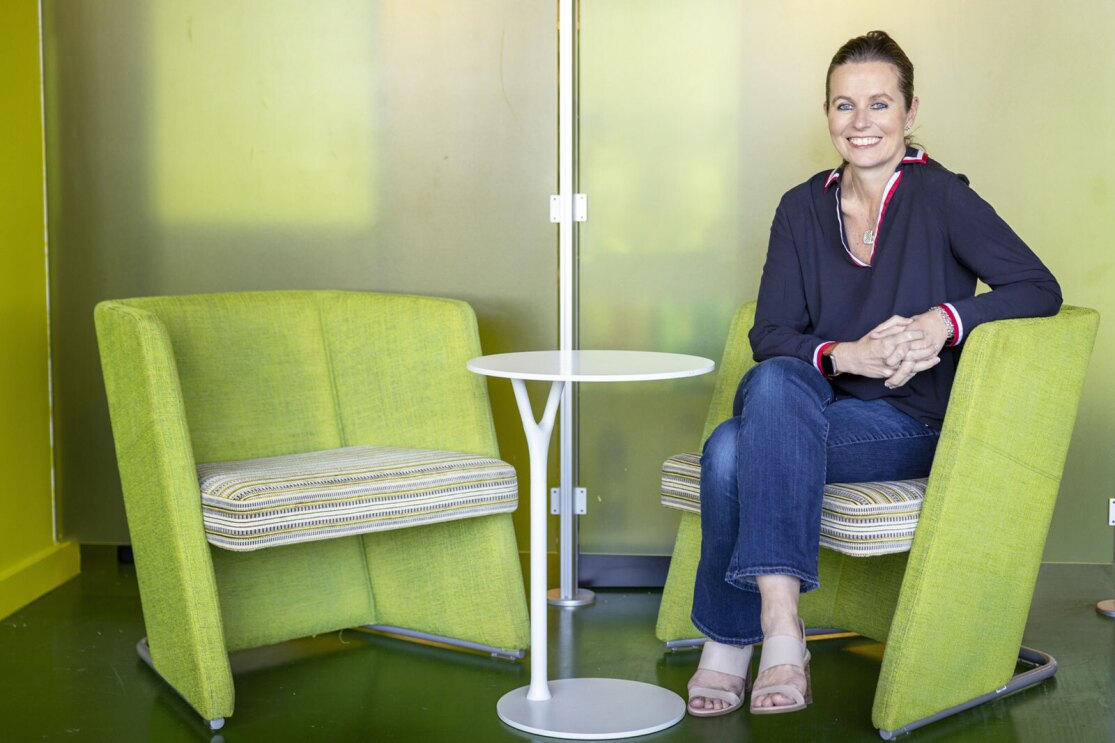
Page overview
Don't discredit entry-level positions or lateral moves.
I started my career in grocery as a cashier to earn money while in college. My favorite part of the job was that each day was different and, even as an hourly employee, I could make a difference in someone’s day. Working in stores made me want more people to see entry-level positions as a great career opportunity, regardless of educational achievement. That position ultimately paved a path for me, and I believe roles like those can turn into a successful career. As the leader of Amazon Fresh, I want our stores, fulfillment centers, and distributions centers to be viewed as a great place to work and build a career.
Similarly, I always encourage people to consider a lateral move, especially if you have the opportunity to round out your knowledge in complementary areas or have the opportunity to work in a new location, city, or country. Most importantly, never discount the opportunity that brings you the most enjoyment—choose the one you’ll be excited to wake up for every day.
I learned this from my mother. She constantly reminded me that I am unique and valuable just as I am. In a professional context, that translates to embracing my authentic self and being OK when I don’t have all the answers. I am willing to ask questions, and I typically find that I’m not the only one with the question—so asking helps me and the broader team to learn and be curious. I also hold various roles in my personal life—wife, mother, sister, auntie, personal driver to my 12-year-old.
I make sure my teams know who I am outside of work to remind them we’re all human. Although I may not always succeed in every endeavor, at work or at home, I never regret making mistakes if I’m staying true to myself. While I know it’s not easy for everyone to be their true self at work, it’s a principle I encourage my teams to practice every day.
I believe everyone, especially those from underrepresented groups and women, can benefit from a mentor. A 2019 report found that women consistently diminish their talents and abilities by perpetually omitting valuable information about their skills, including acknowledgement of key achievements on their resumes compared to men. I am guilty of this too and, like many others, have struggled with imposter syndrome. I no longer let it get in my way thanks to the help of mentors who have listened, helped me see a different perspective, and reminded me of all that I’m capable. As a mentor myself, my goal is to spread the advice and encouragement given to me.
A potential mentor might be someone already in your network. Look for people who have experience or skills in the area you’re looking to grow. Approach them and ask if they are open to a mentorship. Attending industry events or joining professional organizations is another great way to meet potential mentors. Engage with others, ask questions, and express interest in learning from experienced individuals.
A support network is important and looks different for everyone. For me, my family keeps me grounded. My husband and son both worked in retail, which lends them an understanding of my work here at Amazon. I know to be a great leader, I need to establish a strong work-life harmony. They help me to do this and are honest when I am out of balance. My support network also includes friends and connections from throughout my career.
My tips for building a support network include:
- Connect with individuals from various backgrounds, industries, and age groups for a richer support system.
- Nurture your relationships, even when you might not need support.
- Pay it forward, making yourself available when those in your support network need you.
One of my favorite Amazon Leadership Principles—Learn, and Be Curious—is predicated on a deep ability to listen. When I think about solving a problem at work, I can’t think of a time when simply listening hasn’t uncovered a solution—whether it’s walking with customers in our stores as they shop to make their experience better, talking with our teams about an obstacle, asking questions in a different way, especially if I think I know the answer but want to hear different perspectives to build on ideas.
Listening is how we’re able to invent for our teams and customers. My mother would often remind me that we have two ears and one mouth for a reason. Listening to people and seeking to understand how their perspectives differ from your own, versus convincing others your idea is the winning one, is a powerful skill in work and life.


